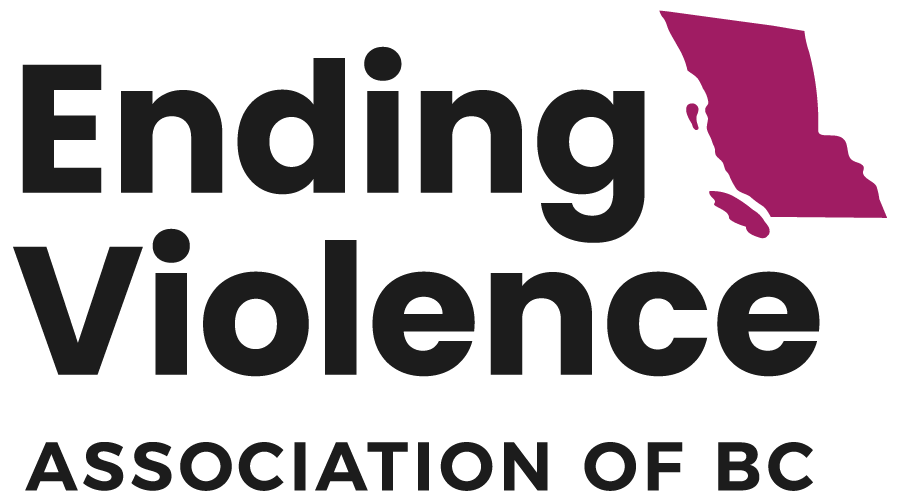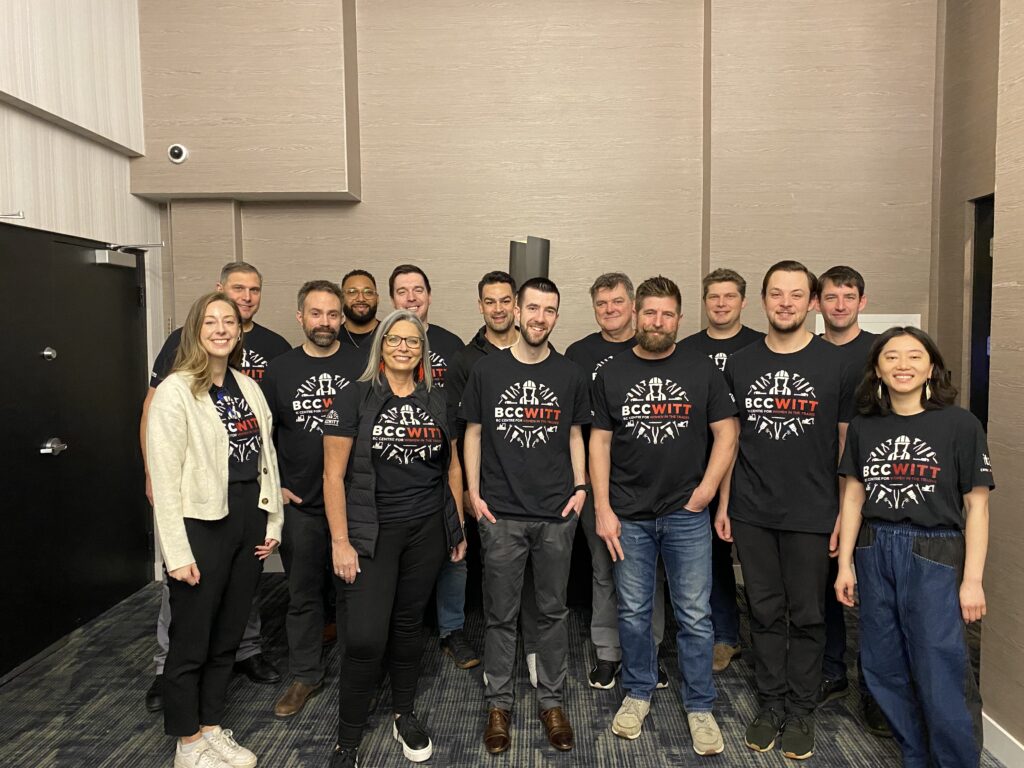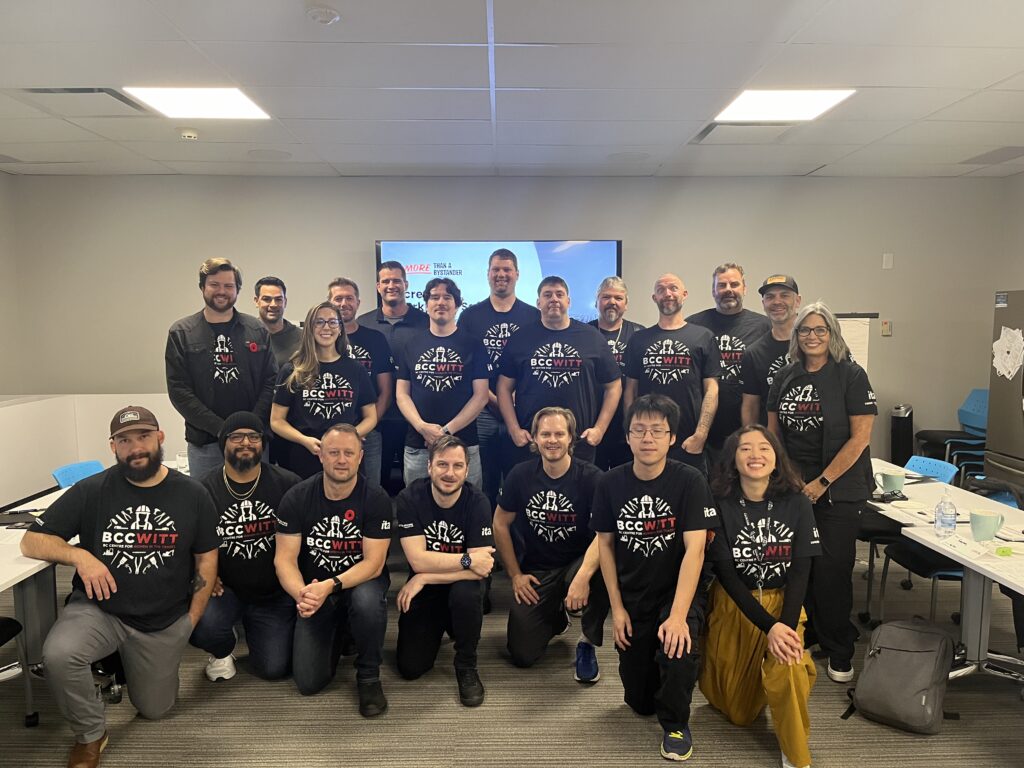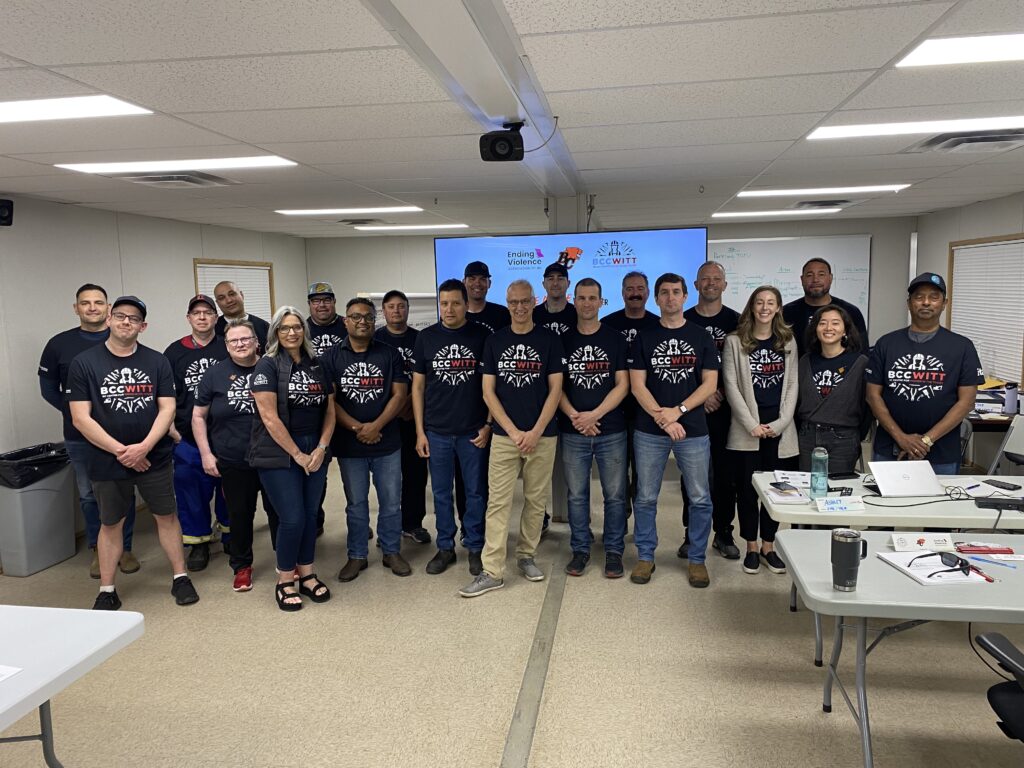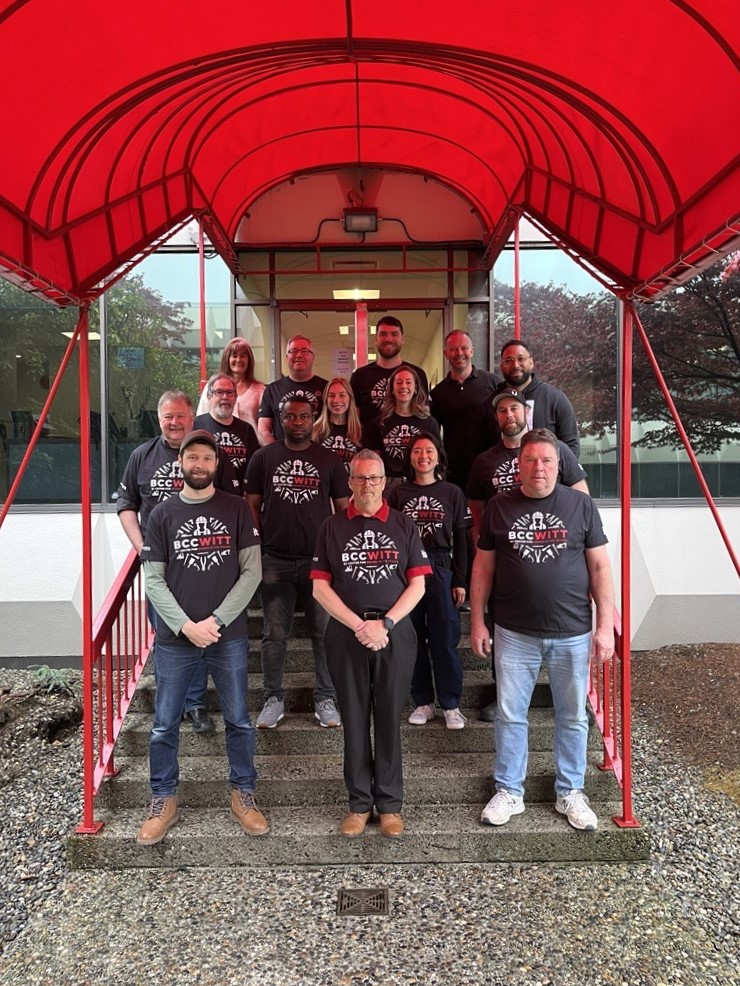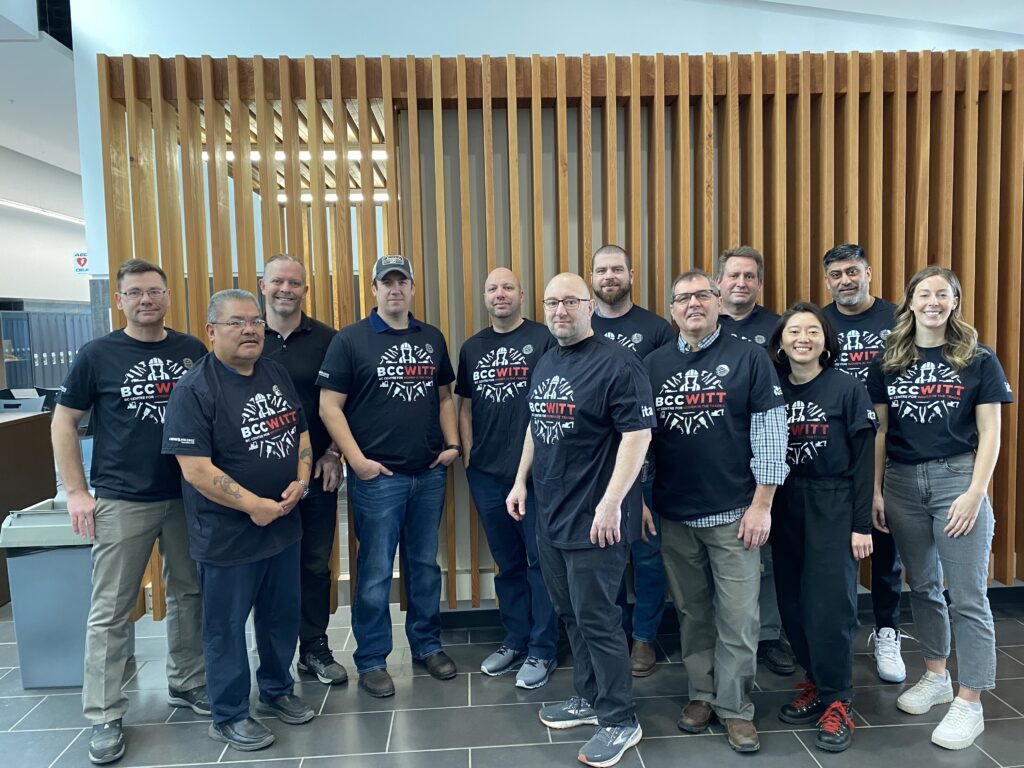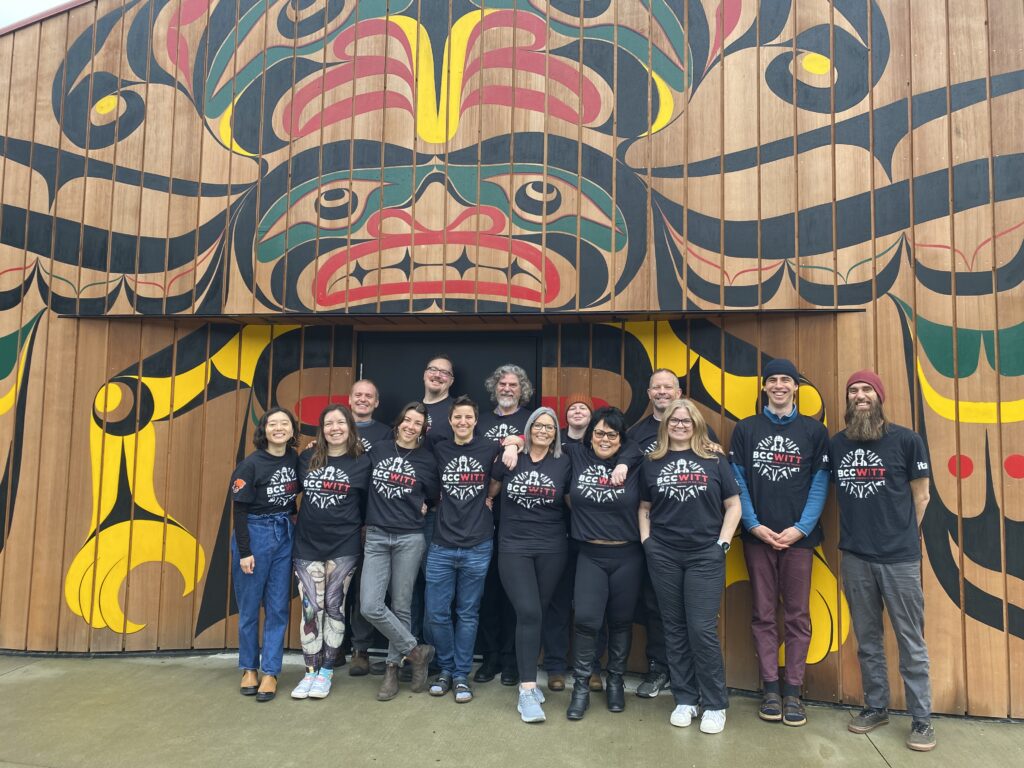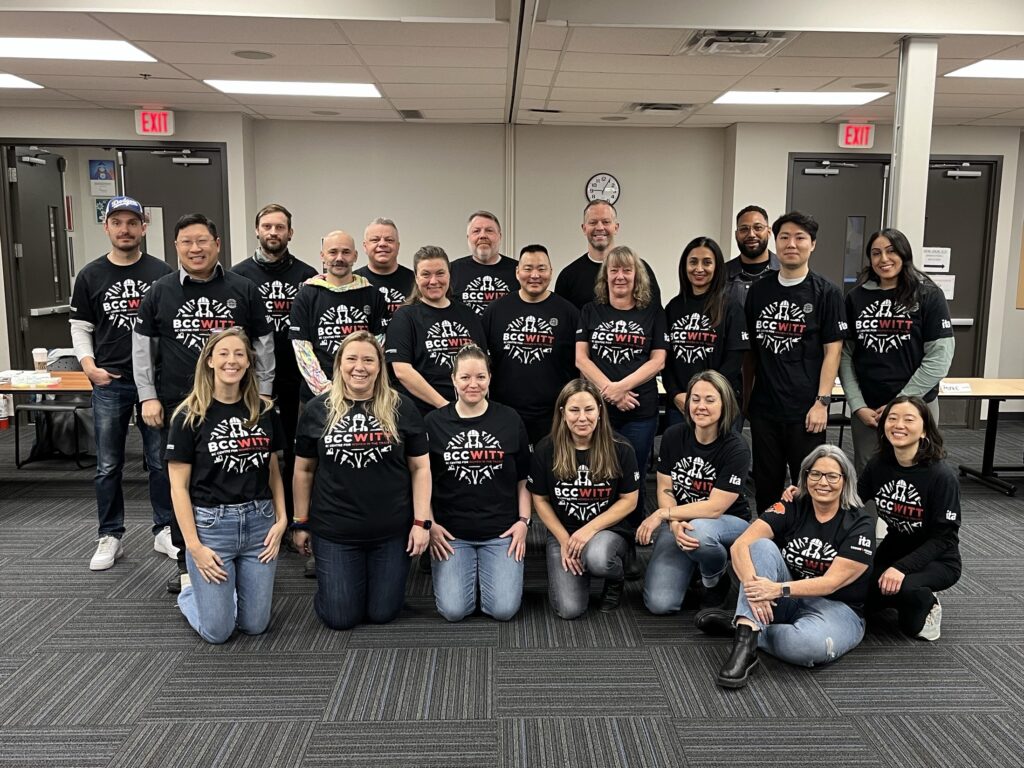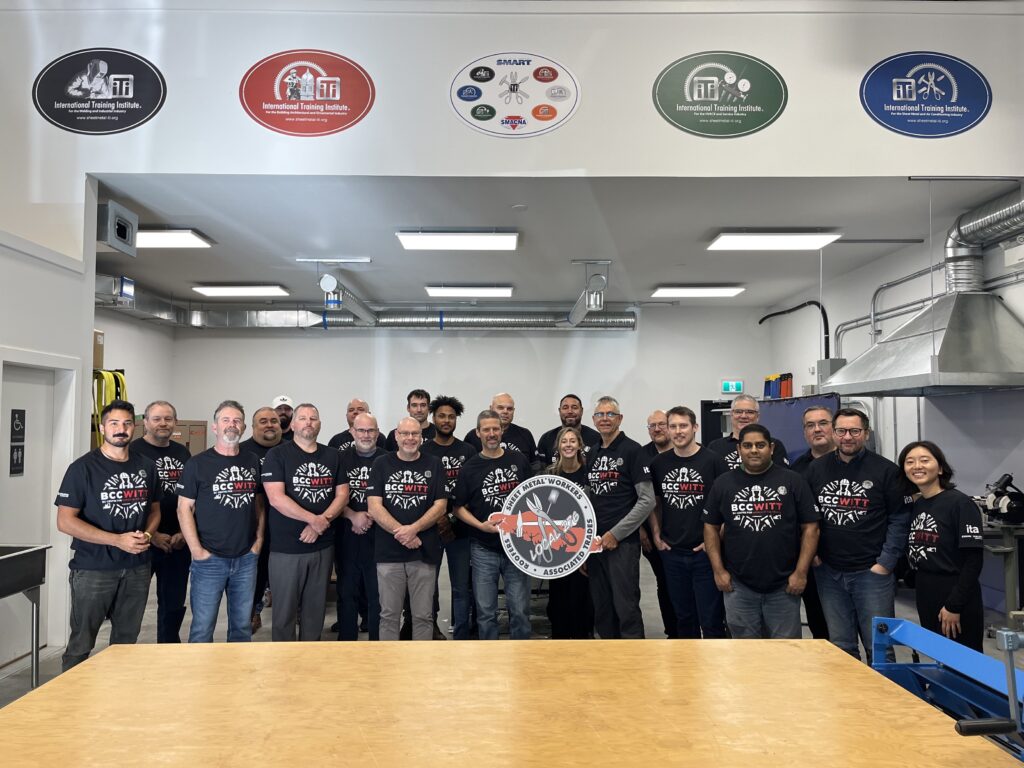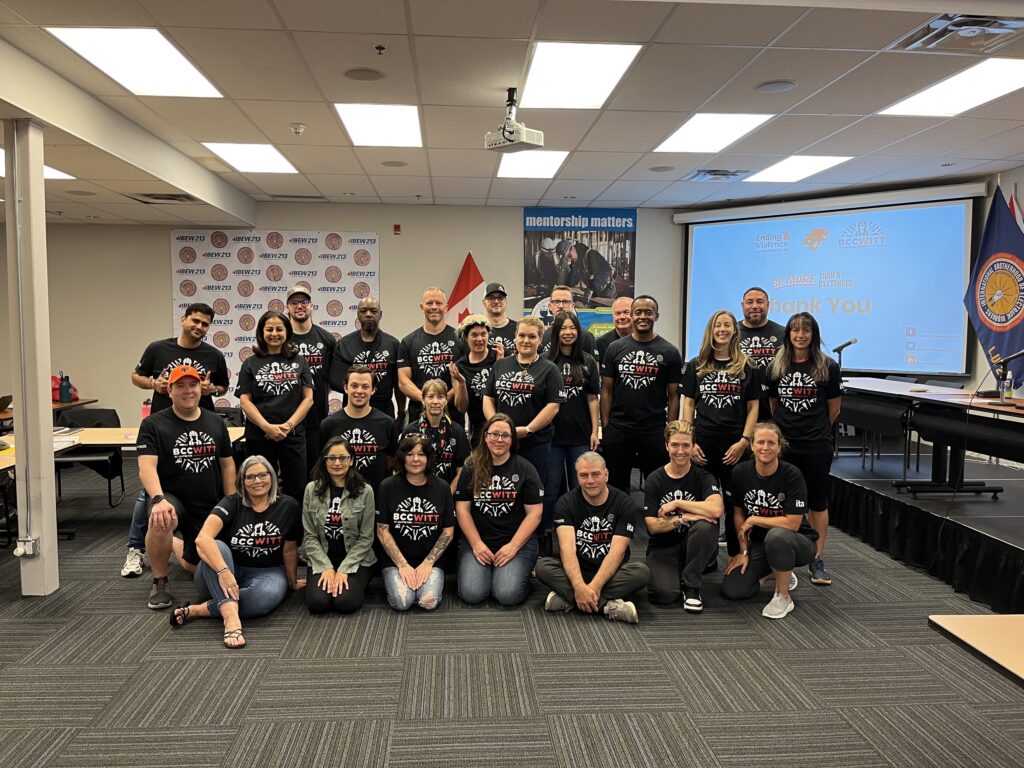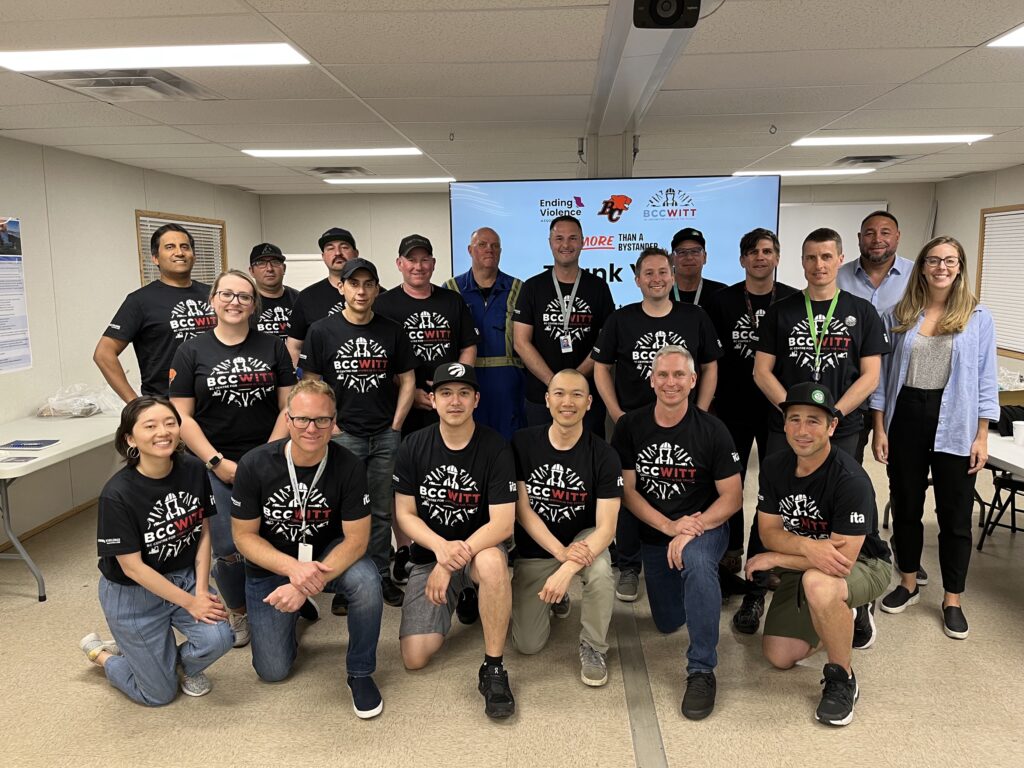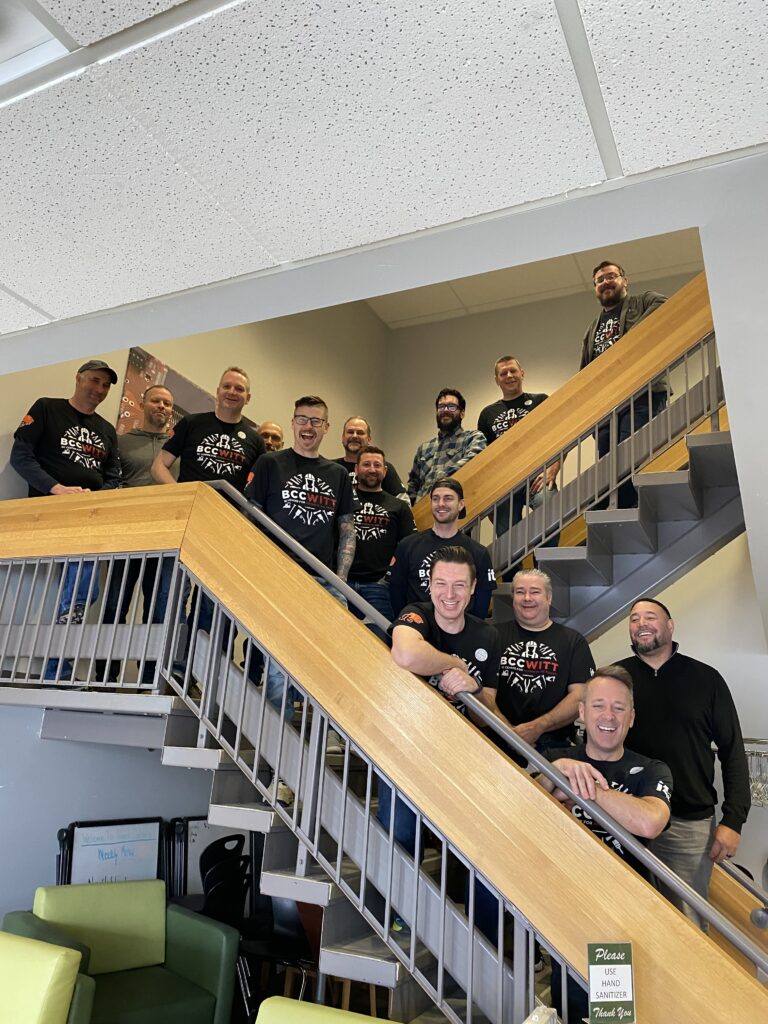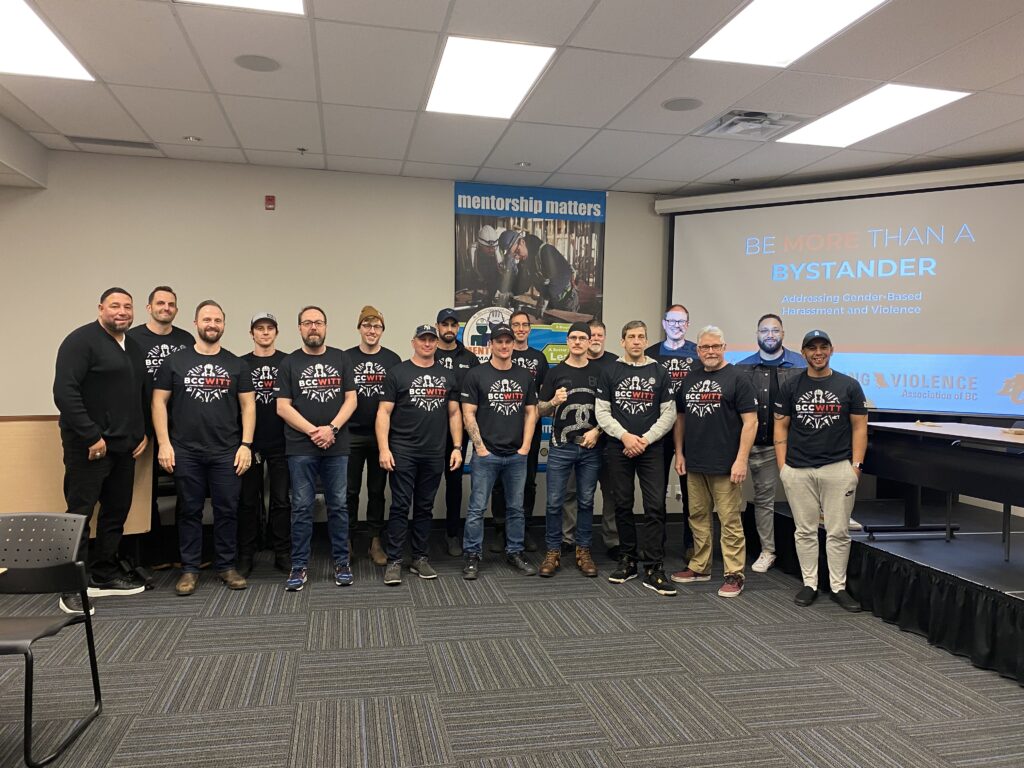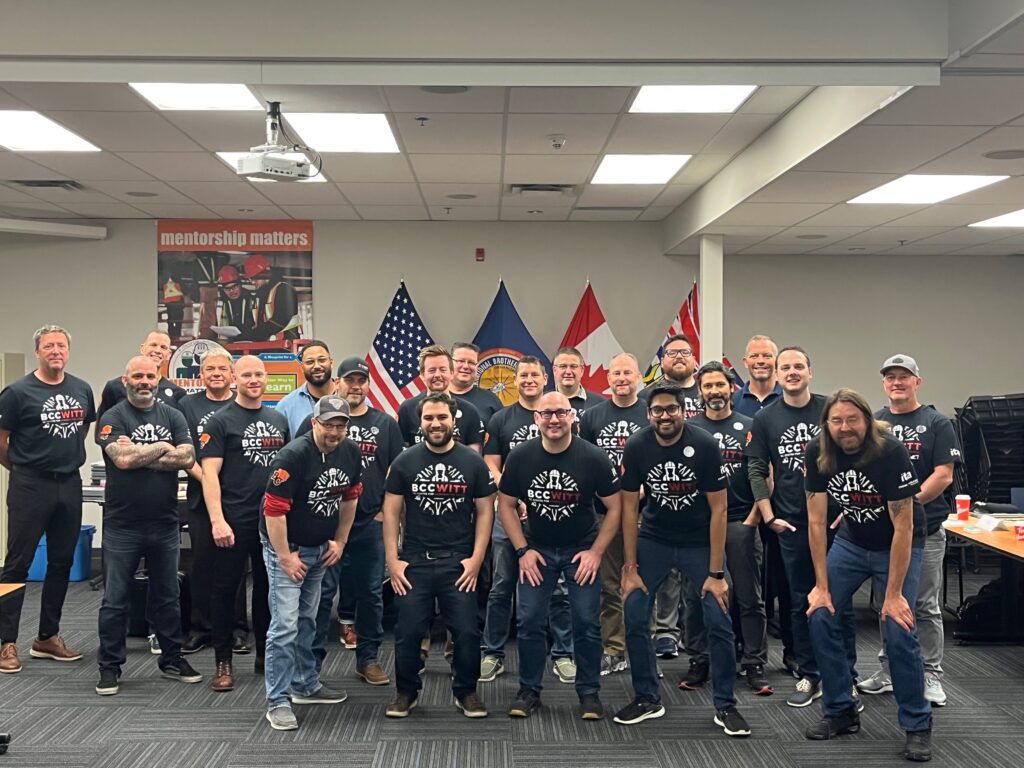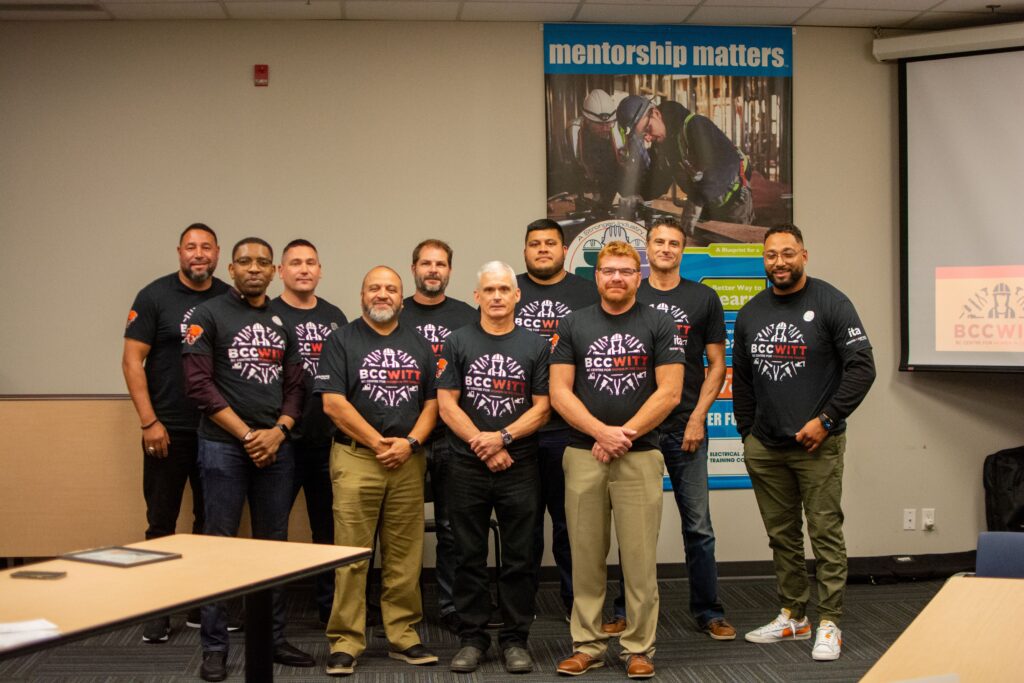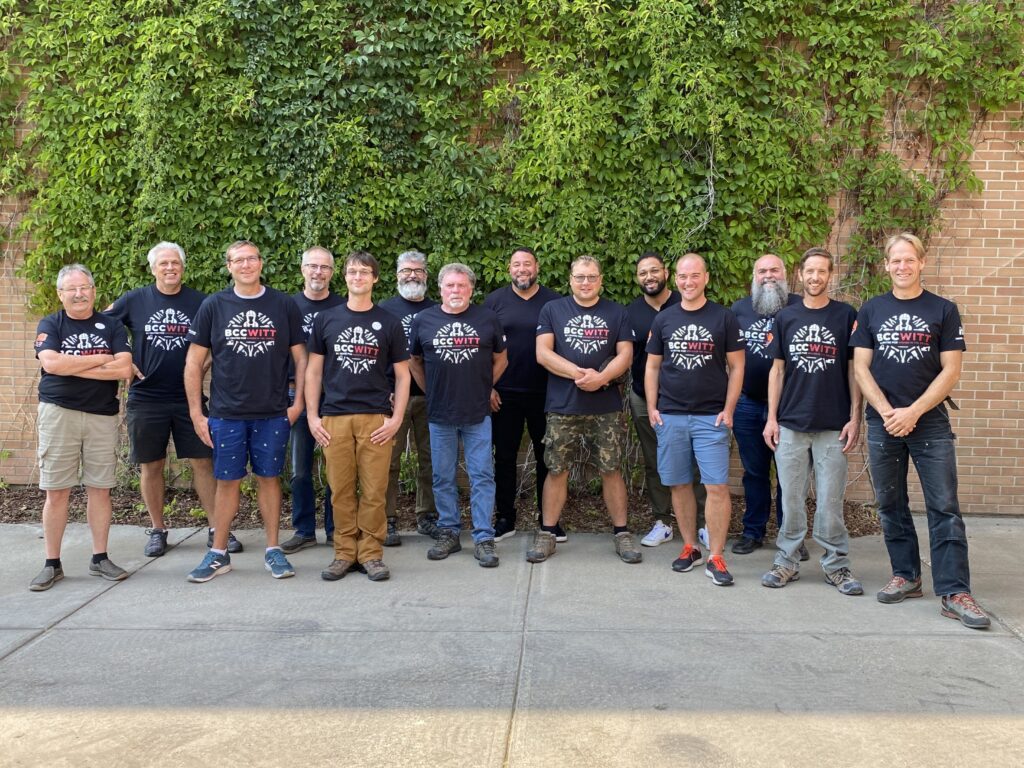The Shift – Individuals and Allies
SHIFTING WORKPLACE CULTURE
Be More Than a Bystander Interventions
What is a bystander?
A bystander is someone who recognizes when violence is occurring but does not intervene.
Being more than a bystander means:
- Taking action to confront harassment, racism, bullying, gender-based violence, and abuse
- Creating safe, respectful environments
- Being a leader and taking action to change the unsafe situation
- Doing something when you see or hear something disrespectful
- It’s NOT ONLY about stepping in when there is severe violence (physical or sexual assault). We can also Be More Than a Bystander when people say or do things like…
- Make inappropriate jokes
- Make others feel uncomfortable
- Harassing or belittling behaviour
Safety first
Safety is an important part of bystander intervention. You don’t want to intervene at the expense of your safety, or anyone’s safety
- It is NOT a superhero approach. We do not want you to jump in and confront them if the situation is unsafe
- There are many ways that you can Be More Than a Bystander while still keeping yourself safe
Non-verbal interventions
- Refuse to join in with sexist, racist, homophobic “jokes”
- Offer your presence, as a way of supporting the person who the behaviour is directed towards
- Remember: if there’s a threat of immediate danger, you should call 911 or call someone else for help. It’s still a way of Being More Than a Bystander, and will help keep everyone safe
Verbal interventions – if you DON’T know them
- Intervene by creating a distraction. If you witness a person being harassed/abused, you could ask the perpetrator for the time or directions, or ask a question about a job task
- Vocalize your support as intervention. If a person is being harassed/abused in a group, say something in support, like: “Hey man, leave them alone” or “I don’t like how you are treating them, stop it”
- Discourage others from participating
- Say something like: “your words/actions are uncalled for, what you’re saying/doing is wrong”
- Get other bystanders to join you in voicing disapproval. Remember—by being silent, you’re saying that this action/behaviour/attitude/word is alright with you
Verbal interventions – if you DO know them
- It’s best to talk to the perpetrator when they’re alone, calm, and when you can speak openly (without being interrupted)
- Tell them you are talking to them because you care about them, and are concerned about what’s happening
- You can say something like, “something seems to be going on with you and I’m worried– can I help?”
- Directly tell them what behaviour you are concerned about. (Make sure that they know that their actions/words are a kind of violence, and need to stop)
- Don’t judge them, but also don’t validate any excuses or justifications they may have. (There is no justification or excuse for violence or abuse!)
- Your goal here is to help them acknowledge that what they are doing is not acceptable, and to help them make sure it doesn’t happen again
- You can say something like: “your actions/words make me afraid that you may seriously hurt someone if you don’t find a way to deal with your problems”
- After you’ve addressed what they did or said, tell them some ways that they can get help with their abusive behavior. You could also suggest that they see a professional counsellor
Help for Targets of Bullying, Harassment or Violence
1-800-563-0808
http://www.victimlinkbc.ca
SHARP Workplaces: SHARP Workplaces provides sexual harassment advice, response, and prevention resources for workplaces in British Columbia.
1-888-685-6222
https://sharpworkplaces.org
BC Human Rights Clinic: The BC Human Rights Clinic provides free legal information and assistance around human rights violations, including discrimination based on gender, sex, sexuality, ability, pregnancy, and more.
1-855-685-6222
https://bchrc.net
Disability Law Clinic (DLC) Legal Services: The DLC provides a Summary Advice and Referral Service which is a FREE, confidential legal service, directly to persons with disabilities from across BC, on certain disability-related areas of law.
1-800-663-1278
https://disabilityalliancebc.org/program/disability-law-clinic
WorkSafeBC: Information about health and safety issues in the workplace, including a Prevention Information Line that can offer support on how to report an unsafe workplace.
1-888-621-7233
https://www.worksafebc.com
Ending Violence Association of BC: If you or someone you know is experiencing violence and need help, please visit EVA BC’s website for a list of service providers in BC.
604-633-2506
http://endingviolence.org

Bystander Spokespeople Trained
Be More Than A Bystander (BMTAB) is a training and educational program to support organizational and cultural shifts towards more welcoming, healthy, safe and respectful workplaces. The training equips participants with practical tools and strategies to intervene and end cycles of bullying, harassment and violence in the skilled trades industry. BMTAB focuses on addressing gender-based and other forms of bullying, harassment and violence.
BMTAB originated as a partnership between the Ending Violence Association of BC (EVA BC) and the BC Lions Football Club, and since 2011, has trained more than 225,000 people in British Columbia on how to speak up and break the silence on violence, bullying and harassment.
Since 2018, BCCWITT has partnered with EVA BC to customize the BMTAB program for the skilled trades industry. This was initiated as a result of the 2017 Enhancing the Retention and Advancement of Women in the Trades report, which found the retention of women and other underrepresented genders is significantly impacted by an unaddressed toxic culture of gender-based bullying and harassment in the industry.
Be More Than A Bystander can be delivered in two formats:
- 3-day Train-the-Trainer (In-Person)
- 2-hour Workshop (Virtual or In-Person)
“Taking the train the trainer program, and going on to teach Be More Than A Bystander has been impactful to me personally, as I now have a greater understanding of gendered violence in the workplace, and more courage to speak up when I see it happening.”
3-day Train-the-Trainer (In-Person)
The 3-day intensive training engages allies to take ownership and play an active role in ending bullying, harassment and violence in their workplaces. Participants learn effective intervention strategies to model in their organizations and are then tasked with sharing what they have learned with other colleagues.
The training is geared towards those who are industry leaders representing employers, contractors, unions, trades training providers or other trades related organizations. Successful candidates will receive a framed certificate upon completing the program.
What are the learning outcomes?
- Develop knowledge of facts and figures about bullying, harassment, and violence
- Apply effective de-escalating intervention tools and strategies
- Understand the impact men and allies can have when they step in and speak up against the toxic culture of bullying and harassment in the industry
- Gain skills to facilitate a 2-hour Be More Than A Bystander workshop
We do not have any upcoming public train-the-trainer cohorts.
Private train-the-trainer cohorts are available. Please contact us at info@bccwitt.ca for more information.
“Facilitating this program is one of the most powerful and rewarding parts of my career. I have been a part of some really powerful moments that help guide our participants to look at their work cultures through a different lens. I know this program is truly making a difference for our jobsite culture and the mental health of our participants.”
2-hour Workshop (Virtual or In-Person)
The 2-hour workshop is designed as an introductory training into ending bullying, harassment and violence in workplaces. This workshop is geared towards employers, contractors, unions, trades training providers and other trades related organizations interested in learning more about the content, but unsure about committing to the train-the-trainer.
What are the learning outcomes?
- Understand contexts of bullying, harassment and violence
- Learn intervention tools
- Build skills through engaging in scenarios
We do not have any upcoming public virtual workshops.
Please contact us at info@bccwitt.ca for more information or to book a 2-hour workshop.
If you have any questions about the Be More Than A Bystander program, please email info@bccwitt.ca.
OUR PARTNERS
